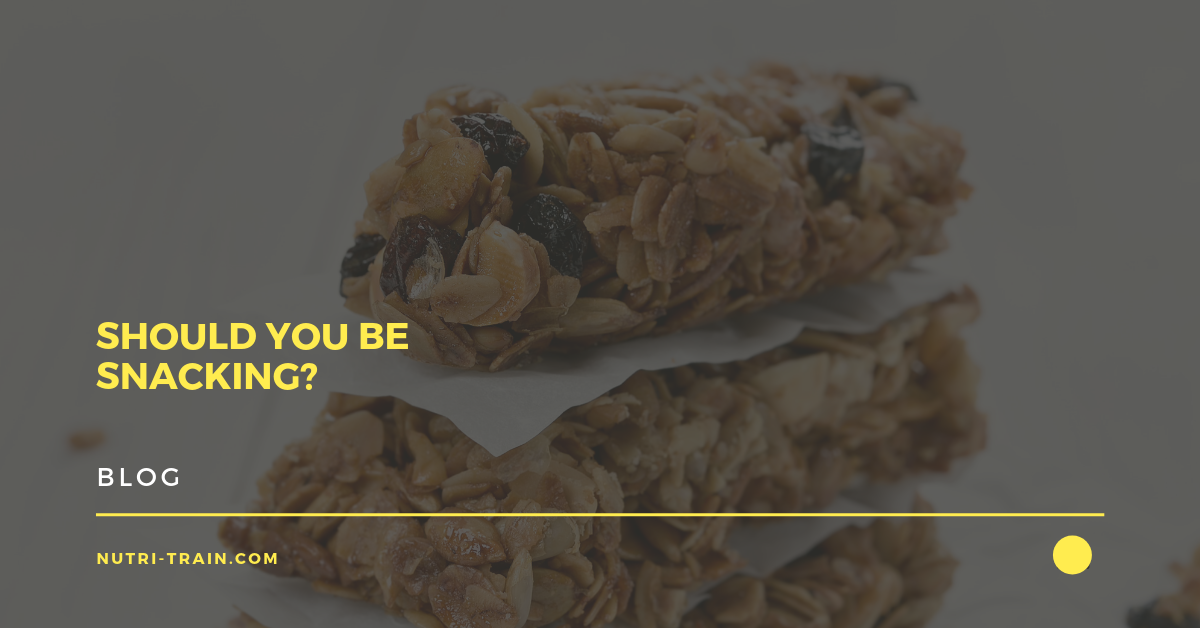|
Snacking is unnecessary and hinders most people’s health and fitness goals. We’ve been told to constantly eat in order to keep our metabolism healthy, yet snacks are rarely nutritious, and often energy-dense and sugar and carbohydrate rich. All of which cause more problems than the one they’re intended to support. I personally seek to minimise spikes in insulin (the storage hormone) by avoiding snacking and eating 2-3 larger meals daily, which are packed with flavoursome veggies (fibre), good fats and protein (both for increased satiety). I rarely snack in between meals for three reasons:
So, is there a time and place for snacking? The simple answer is: not if you’re eating enough of the right stuff at mealtimes, but the more complicated answer is yes, if you’re really hungry or just not able to get a good enough meal in. We’re not perfect, and we just don’t always know exactly how our days or meals will unfold, which is when snacking is our saviour. The two scenarios below outline two common ‘snacking situations’ for me: 1. If I am dining somewhere that has small serving sizes, or, somewhere that ‘bulks up’ their meals with starchy carbs (like rice, fries or bread) or overly processed foods (think Chinese restaurants). I will either order some extra protein (e.g. calamari or halloumi) if that’s an option, or finish my meal with a snack rich in protein and/or good fast to help satisfy my appetite. 2. If I am travelling and don’t know when my next opportunity for a quality meal will be. On long haul flights, I take the opportunity to fast as in-flight meals are generally carb and sodium-heavy, plus, the research on how fasting can help minimise jet-lag is very appealing and effective. But even after landing, I still don’t know when I’ll get the chance to sit down and eat properly. I carry a bag of nuts and sometimes some protein bars to see me through if I can’t last until the next meal. Bear in mind that fasting isn’t for everyone, and you might be better off taking your own meals or snacks onboard, so you’re not tempted by the sweets and sodium rich foods on offer. These scenarios I outline above might occur a few times a month, but there’s really no need to be snacking. Because in addition to messing with our insulin levels (which effects our energy and mood), constantly eating through snacking often leads to overconsumption of calories, since the snacks are rarely satisfying and are full of salt, sugar and artificial flavour enhancers which leave you wanting more. When you’re transitioning to a diet with less sugar and processed foods, start by focusing on minimising until you adapt, since most tend to fail when taking on too much. But, make sure to drink plenty of water and eat plenty of satiating fats (tahini, avocado, nut butters, eggs) with your meals to minimise the feeling of deprivation. Eating more nutritious and satisfying meals is the best way to stabilise your mood, weight and energy levels, as well as feeling your best. Try adding more protein and fibre to your meals for the next two weeks and see if you can reduce or eliminate your need to snack. Let me know how you get on! Speak soon, JC.
1 Comment
Beth
22/3/2019 02:42:34 am
This is an internist way to look at fat loss! Thank you!
Reply
Leave a Reply. |
AuthorsJC and The Nutri-Team Archives
November 2020
Categories
All
|

 RSS Feed
RSS Feed
